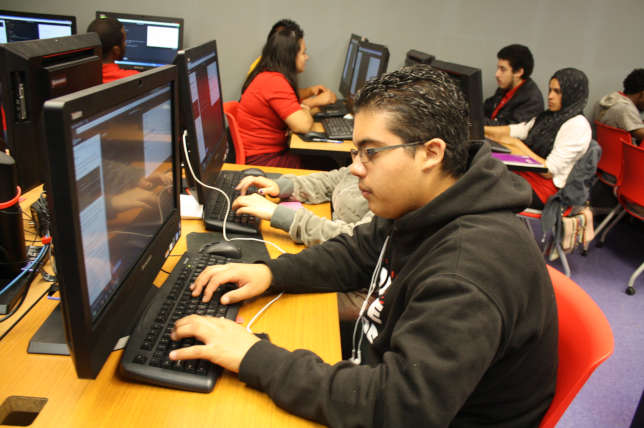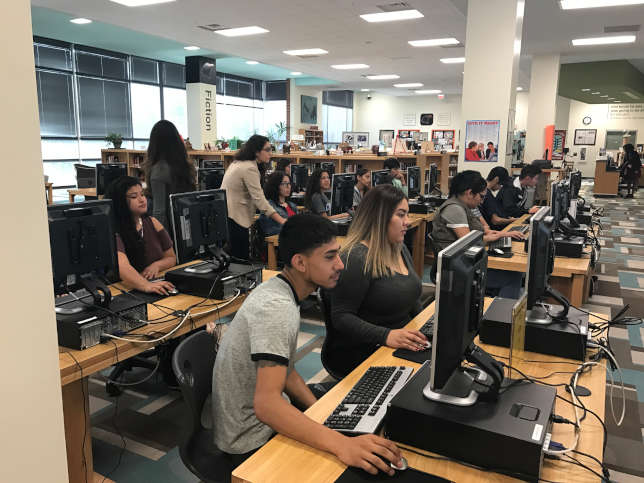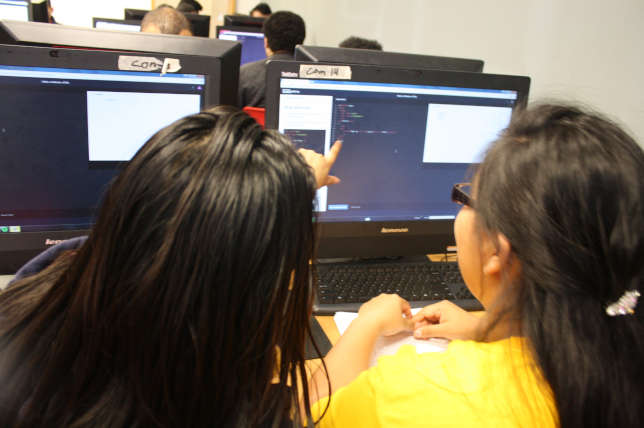Coding as a Second Language
The Panasonic Foundation and the Hispanic Heritage Foundation are collaborating to launch four academies to teach code as a second language to middle school and high school students.

In an effort to expose more students to computer science, the Panasonic Foundation and the Hispanic Heritage Foundation are coming together to launch four Code as a Second Language academies in Newark, NJ, Reno, NV, Atlanta, GA, and Calexico, CA. The academies will be a six- to eight-week coding course for students that meets for up to 90 minutes during the school day or as part of an afterschool program.

“The harsh reality is that a lot of students of color in predominantly low-income areas do not have access to the full range of STEM courses in their schools,” said Alejandra Ceja, Executive Director Panasonic Foundation. “Through this partnership, Panasonic is providing more students with hands-on access to innovation and technology that is crucial to the 21st century workforce.”
Once students complete the coding course, they will be referred to the Latinos on Fast Track (LOFT) Network for ongoing instruction online. The network will also connect students with networking opportunities and STEM-related events.

The Code as a Second Language program was developed by the Hispanic Heritage Foundation in 2013. By the end of this year, the academies will be available in 75 regions, reaching more than 100,000 students.
More information on the program can be found here.
About the Author
 Sara Friedman is a reporter/producer for Campus Technology, THE Journal and STEAM Universe covering education policy and a wide range of other public-sector IT topics.
Sara Friedman is a reporter/producer for Campus Technology, THE Journal and STEAM Universe covering education policy and a wide range of other public-sector IT topics.
Friedman is a graduate of Ithaca College, where she studied journalism, politics and international communications.
Friedman can be contacted at [email protected] or follow her on Twitter @SaraEFriedman.
Click here for previous articles by Friedman.